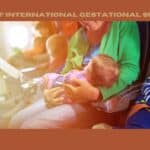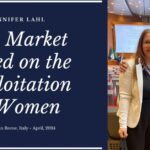Now this is what I am talking about! From the Boston Globe.
Stem cell work isn’t dying
THERE THEY go again!
In their April 18 op-ed, Christopher Thomas Scott and Jennifer McCormick resound the false alarm that US scientists are falling behind on stem cell research because of the public’s objection to human embryo research. Their real motive is thinly veiled by their flimsy statistics on stem cell research reports and their ridiculously simplistic description of ”our biomedical ‘discovery machine.’ “
As an active American stem cell biologist, I can attest that stem cell research in the US is still pushing the frontier. It may be true that more funding would be available if there were no rift over the morality of harming human embryos. However, many US scientists recognize the great importance of this public discussion. In the end, when the public says no to the use of human embryos for research, stem cell research in America will not die. It will just get better from increased research effort on adult stem cells and new approaches to convert adult stem cells into cells with the desired properties of embryonic stem cells, but without the use of human embryos. And when there is good science, good funding and good investment will soon follow, as always.
JAMES L. SHERLEY
Boston
The writer is an associate professor of biological engineering at MIT. ![]()
Author Profile

- Jennifer Lahl, MA, BSN, RN, is founder and president of The Center for Bioethics and Culture Network. Lahl couples her 25 years of experience as a pediatric critical care nurse, a hospital administrator, and a senior-level nursing manager with a deep passion to speak for those who have no voice. Lahl’s writings have appeared in various publications including Cambridge University Press, the San Francisco Chronicle, the Dallas Morning News, and the American Journal of Bioethics. As a field expert, she is routinely interviewed on radio and television including ABC, CBS, PBS, and NPR. She is also called upon to speak alongside lawmakers and members of the scientific community, even being invited to speak to members of the European Parliament in Brussels to address issues of egg trafficking; she has three times addressed the United Nations during the Commission on the Status of Women on egg and womb trafficking.
Latest entries
 infertilityApril 23, 2024The Rise of International Gestational Surrogacy in the U.S.
infertilityApril 23, 2024The Rise of International Gestational Surrogacy in the U.S. Assisted Reproductive TechnologyApril 16, 2024Founder Jennifer Lahl’s Speech on Surrogacy to the Casablanca Declaration
Assisted Reproductive TechnologyApril 16, 2024Founder Jennifer Lahl’s Speech on Surrogacy to the Casablanca Declaration #BigFertilityFebruary 27, 2024No, Alabama Didn’t Ban IVF
#BigFertilityFebruary 27, 2024No, Alabama Didn’t Ban IVF ArticleSeptember 25, 2023The Little Engine That Could
ArticleSeptember 25, 2023The Little Engine That Could

